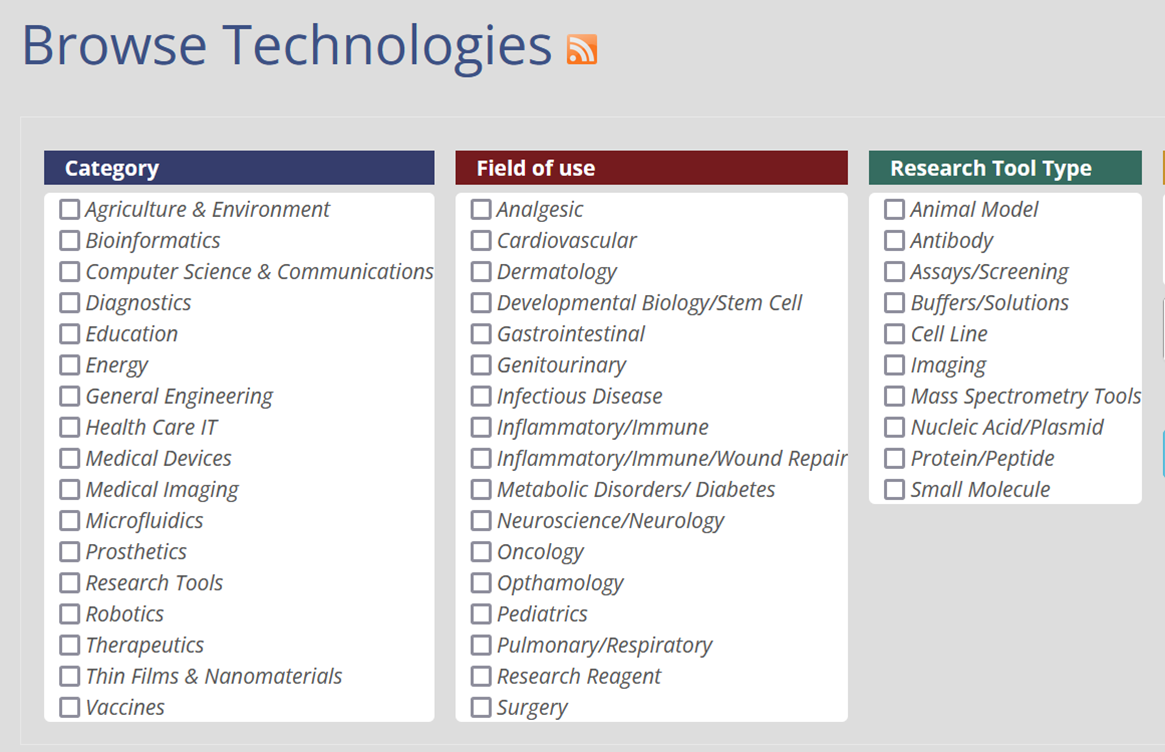Browse Technologies Available for Licensing
CTTC is the conduit through which companies access technologies that are developed while conducting research and caring for patients at Vanderbilt. Learn more about Vanderbilt's core Available technologies for partnering, and Technology portfolio pipelines.
